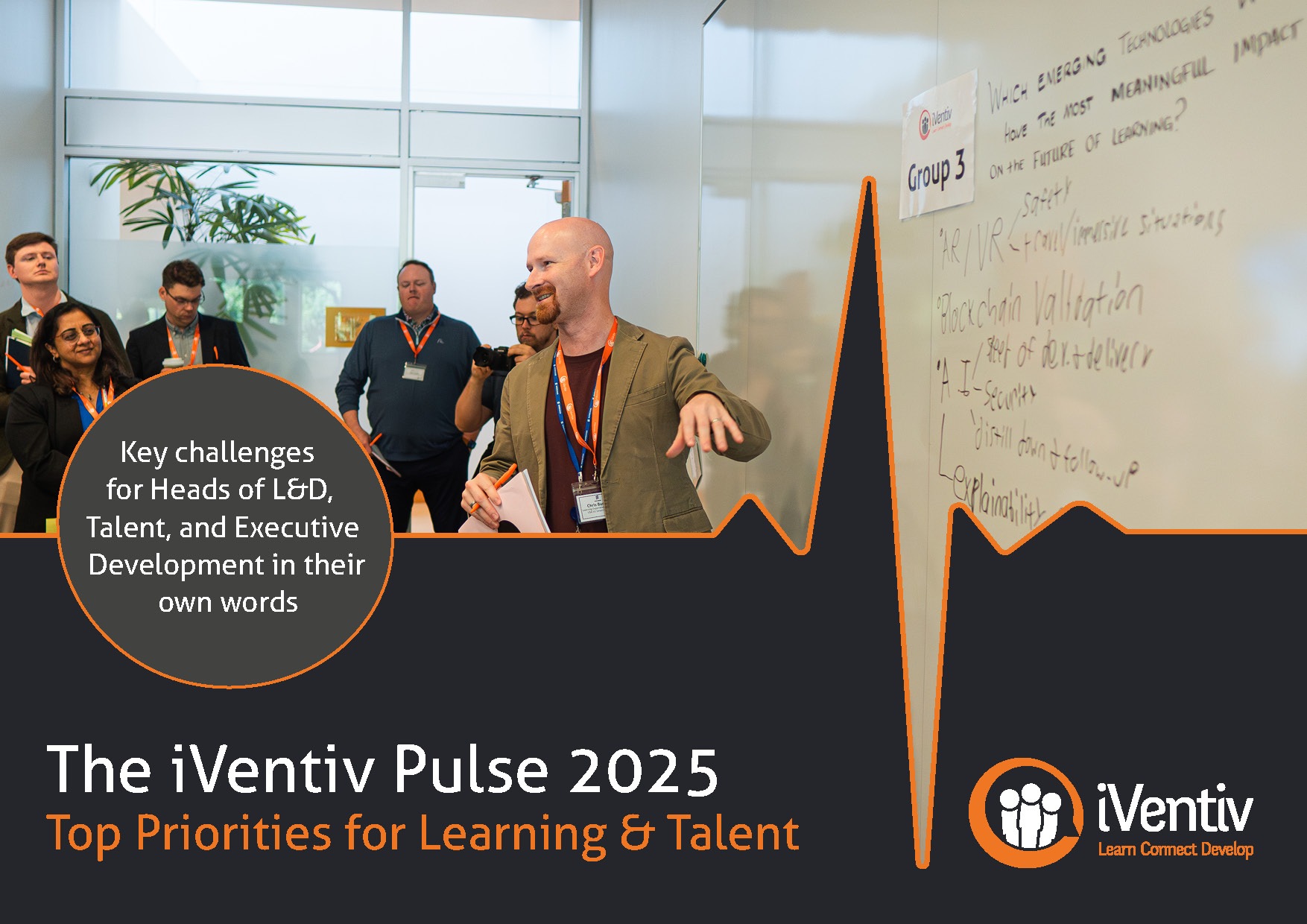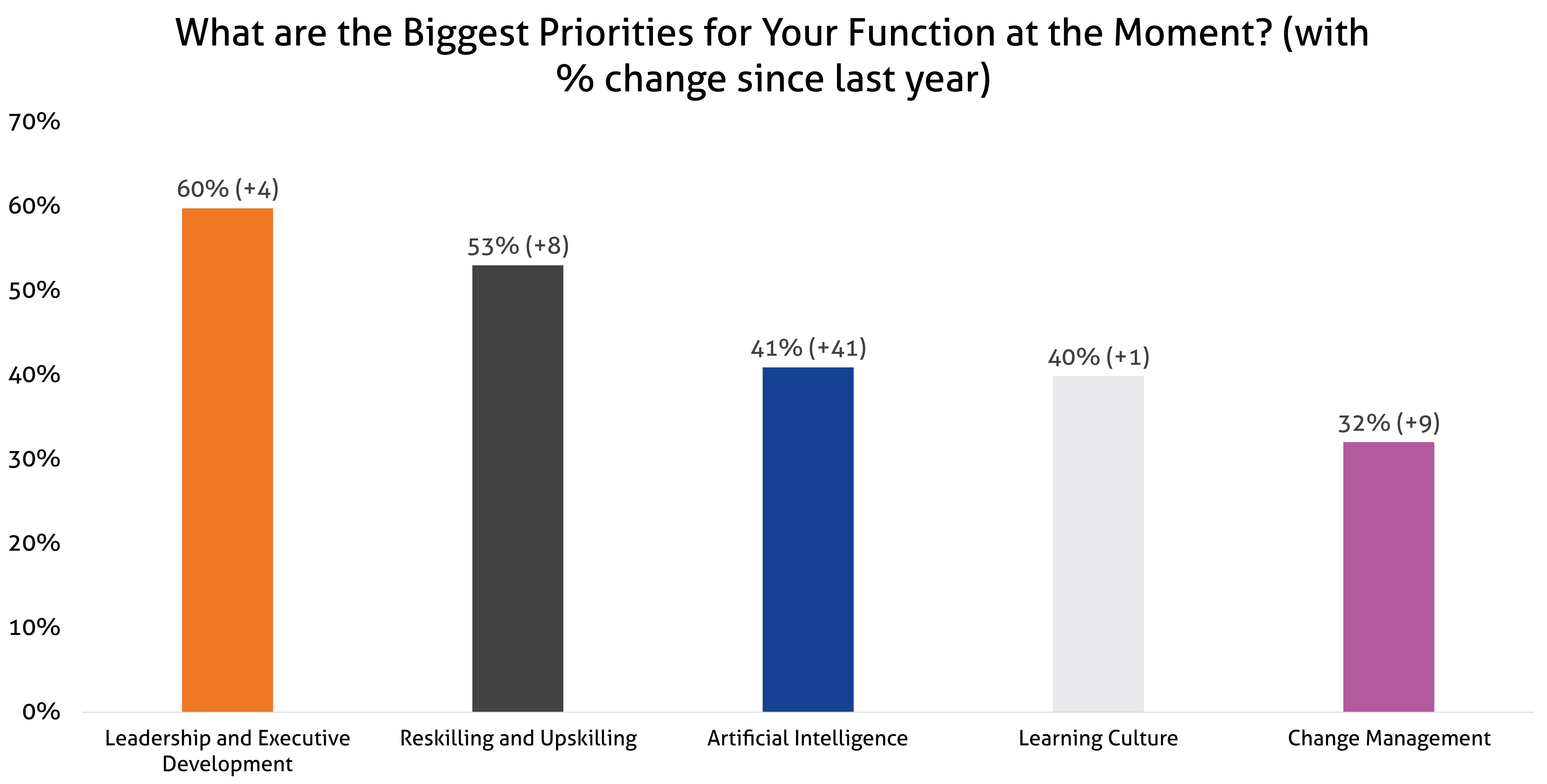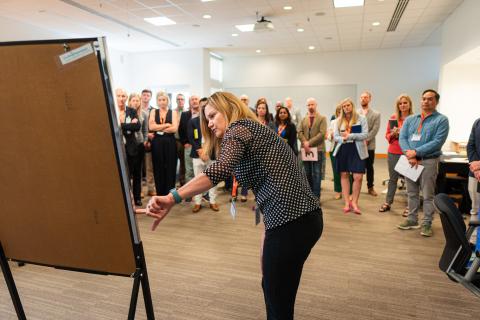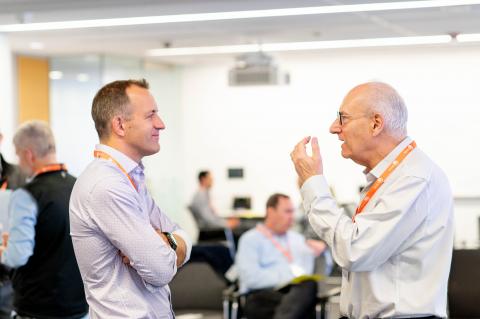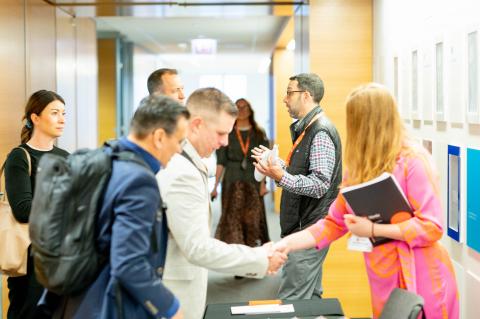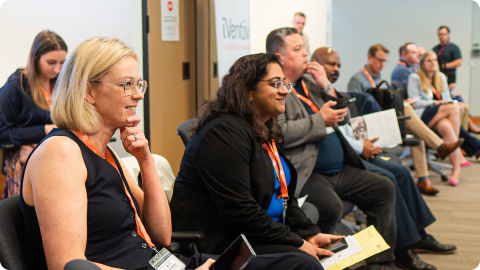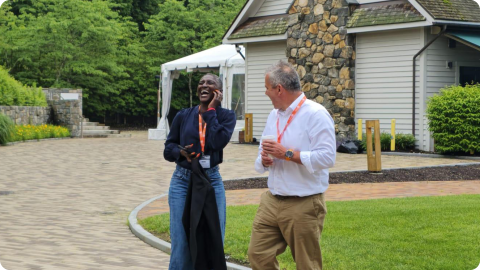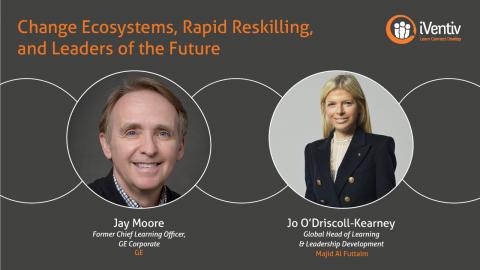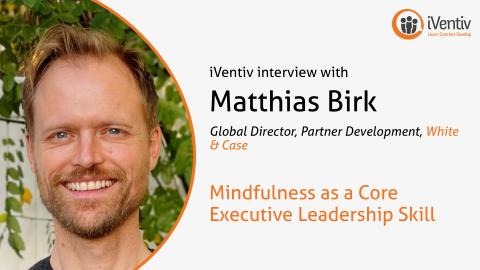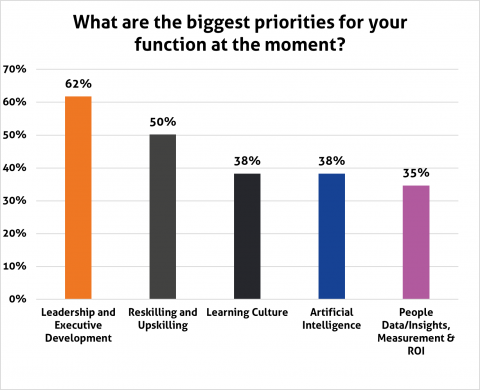Submitted by Richard.Parfitt on
As we step into 2025, the landscape of Learning and Talent Development is evolving at an unprecedented pace.
The 2025 iVentiv Pulse report sheds light on the key priorities and challenges that Heads of Learning, Talent, and Executive Development are grappling with. This comprehensive report, based on iVentiv pre-event questionnaire responses from 563 leaders across 448 companies, offers a unique glimpse into the future of work and the strategies that will shape it.
You can download the full report here, or read on for a summary of the top five topics:
1. Leadership and Executive Development
Selected by: 60% of Respondents (+4% compared to 2024)
Leadership and Executive Development continues to be the most selected topic overall, reflecting the onus that L&D leaders are placing on leaders when it comes to navigating the complexities of today's business environment. Leaders are not only expected to steer their organisations through economic uncertainties and technological disruptions, but also to foster a culture of curiosity and continuous learning.
2. Reskilling and Upskilling: Building the Skills-Based Organisation
Selected by: 53% (+8%)
The rise of Reskilling and Upskilling as a top priority underscores the urgency organisations and Learning teams feel to equip their employees with the skills required to adapt to new technologies and ways of working. The shift towards skills-based organisations is another key factor, with leaders emphasising the importance of flexible and inclusive talent practices that can meet the demands of a dynamic workforce.
3. Artificial Intelligence: Can L&D Lead?
Selected by: 41% (+41%)
Artificial Intelligence (AI) is taking a lot of the headlines and Learning & Development is clearly no different. The report reveals a growing interest in leveraging AI to augment learning experiences, provide personalised learning, and support workforce transformation.
4. Learning Culture: Curiosity, Continuous Improvement, and Change
Selected by: 40% (+1%)
Learning Culture was the fourth most popular topic among respondents this year, with Learning Executives concerned about remaining competitive and innovative. The report highlights the perceived importance of leaders in setting the tone for a learning culture that encourages self-led, on-the-job learning. For Heads of Learning and Talent, this approach is particularly vital in times of upheaval and change, where the ability to adapt and learn quickly can make the difference between success and failure.
5. Change Management: Underpinning Everything?
Selected by: 32% (+9%)
The rapid changes impacting businesses and Learning teams are everywhere, with some level of change underlining the focus on each of the other top topics detailed in this report. Whether it’s technology, a restructured learning team, or political disruption, L&D leaders clearly feel that navigating and driving change will be a big priority for them in 2025.
The iVentiv Pulse 2025 report provides a rare insight into the priorities and challenges facing Learning and Talent leaders today. As organisations navigate the complexities of the modern business landscape, the focus from L&D executives on leadership, skills development, AI integration, learning culture, performance management, and employee engagement. By embracing these priorities, organizations can build a resilient and adaptable workforce ready to meet the demands of the future.
Read the full report for a detailed analysis of the data, with expert reflections from Nigel Paine, Stefaan van Hooydonk, Vidya Krishnan, Jay Moore, Brian Murphy, and Gary Kildare.
